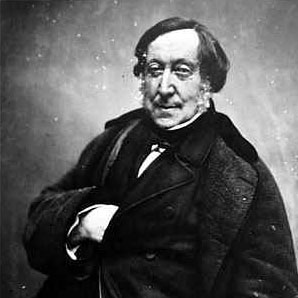
10 June 2012
Schopenhauer on Music
"For music everywhere expresses only the quintessence of life and of the events taking place in it, never these themselves, and so distinctions within these do not always influence it. Precisely this universality, exclusive as it is to music, together with the most exact precision gives music its high value as the panacea for all our suffering. Thus if music ties itself too closely to words or tries to model itself on events, it is tryingf to speak a language that is not its own. Nobody has avoided this error as completely as Rossini; which is why his music speaks its own language so clearly and purely that it has no need of words at all and retains its full effect when performed in instruments alone."
That sounds rather equivocal praise for Rossini, who composed for opera, i.e. specifically for words and a stage set, not the concert halls Schopenhauer seems to have in mind here.


Subscribe to:
Post Comments (Atom)
Knowledge is warranted belief -- it is the body of belief that we build up because, while living in this world, we've developed good reasons for believing it. What we know, then, is what works -- and it is, necessarily, what has worked for us, each of us individually, as a first approximation. For my other blog, on the struggles for control in the corporate suites, see www.proxypartisans.blogspot.com.



No comments:
Post a Comment